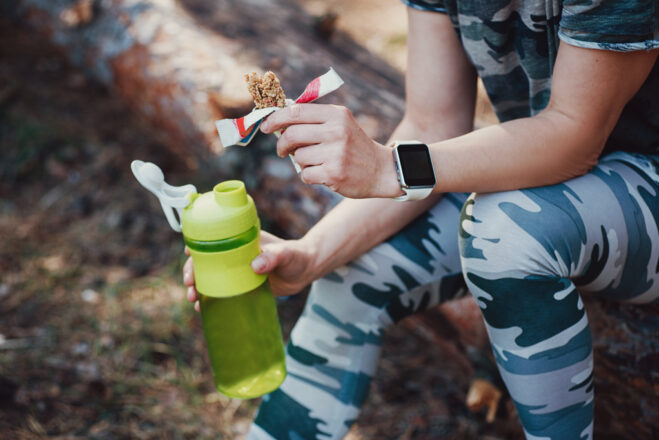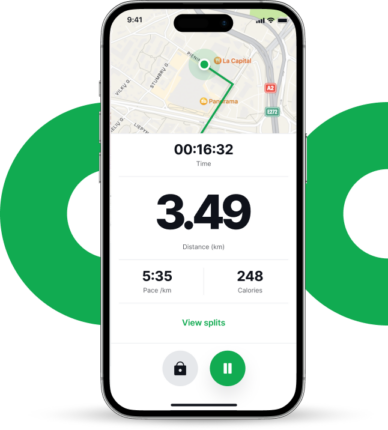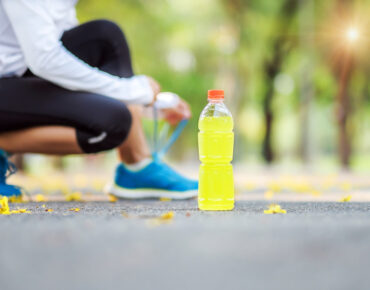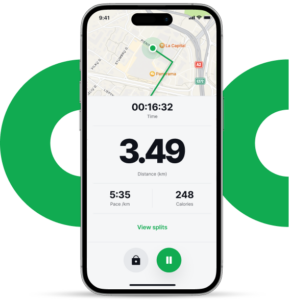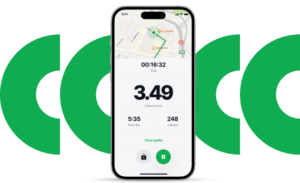So, you nailed your pre-run meal a few hours before your running session. You have even mastered your carb-loading approach for the day before your run or race. Now, the last factor of the equation is to perfect what you should be eating during the actual run. Let’s examine your choices.
In This Article:
What Should I be Eating During a Run?
Should you take a salad-to-go on your run that is full of fatty-dressing and fibrous vegetables? Nope, that bolus sitting in your stomach won’t digest well or provide energy that you need to push through the finish line.
Some foods are inherently a bad choice for consumption during your run, even if they are great in a pre-workout meal or serve as a good recovery meal.
What you need during a run is ultra-digestible sources of simple carbohydrates and amino acids without much fiber or other bulk that will slow down digestion and add unnecessary weight to your stomach.
Sure, you could just drink a sports drink that has electrolytes and simple sugars to give you a fast-acting source of energy. But, they don’t typically provide fast-acting amino acids that can reduce muscular fatigue and digest too quickly if they are consumed on a relatively empty stomach.
So, we’ve ruled out whole foods that take too long to digest and liquid sports drinks that aren’t as effective as their advertisements make them out to be. So what is actually good to eat during a run?
Best options for eating during the run:
- Energy gels
- Energy bars
- Fresh fruit
- Sugar-based candy like gummy bears and jelly beans
Which of these is the best choice?
Benefits and Drawbacks of Different Food Types
Energy gels:
- Typically contain simple sugars, like glucose and fructose
- Can contain additional beneficial ingredients like electrolytes, caffeine, and BCAAs (Branched-Chain Amino Acid) / EAAs (Essential Amino Acids)
- Tend to be the least palatable of the options
Energy bars:
- More like a whole food source, so digestion rates are lower
- Provide ample carbohydrates and protein/amino acids
- More energy-dense than other options
Fresh fruit:
- A great source of simple sugars and some electrolytes
- Not always as convenient to take on the run with you
- Don’t supply several micronutrients needed during a run as gels and bars
Sugar-based candies
- Ultra-palatable source of simple sugars that digest quickly
- Easy to pack and carry on your run
- Don’t provide electrolytes or amino acids
Looking at the options, it appears that a well-designed energy gel will be your best option for refueling during an extended running session!
How Much Should I Eat While Running?
When running, the recommendation is that you need around 30–60 grams of carbohydrates per hour of running if the duration is less than 2.5 hours long. Above 2.5 hours, and that recommendation goes up to 60–90 grams per hour. Simple sugars have been shown to digest more readily if there are two types of sugar present, like glucose and fructose.
BCAAs, and EAAs accordingly, have also been found to reduce fatigue during endurance exercise. 176mg of BCAA per pound of body weight was shown to be effective, although this dosage isn’t verified as perfect. If you can score an energy gel with added BCAAs or EAAs, it looks to be a very good option for fatigue reduction.
Electrolyte needs vary, depending on the running environment and hydration levels, but getting an energy gel that has a balanced ratio of electrolytes will help you stay fueled during your run as well.
Lastly, if your energy gel has caffeine, take advantage. This naturally occurring stimulant has been found to reduce fatigue during endurance exercise, too.
Key Takeaways:
- During a running session or race, there are only a few types of food that are good to consume. Other foods take too long to digest and only hinder performance and energy levels.
- Energy gels, bars, fresh fruit, and sugar-based candy are common partners on the run. However, it seems that well-designed energy gels have the upper hand over the other options.
- Try and find an energy gel that has ample amounts of simple sugars, preferably in two or more types (glucose, fructose, etc.).
- Other beneficial ingredients for energy gels include electrolytes, BCAAs/EAAs, and caffeine.

